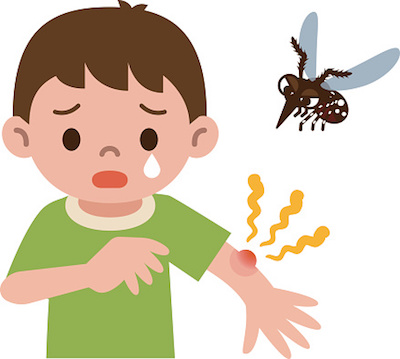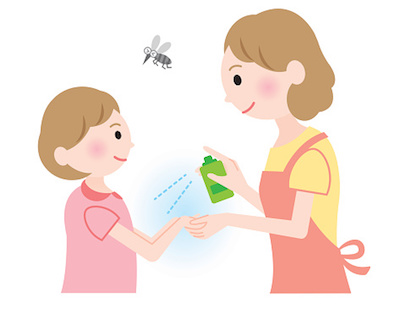Should I be concerned about my children getting the Zika virus?
Does the Zika virus have you concerned? If so, you aren’t alone. And even though there are nearly constant news updates and online chatter about the illness, sometimes it is still difficult to know what’s important in an outbreak such as this with serious public health implications.
Most of the public discourse regarding the Zika virus centers around pregnant women, and this is due to a known correlation between a pregnant woman who has contracted the virus and the development of certain birth defects in her fetus. Babies who have been exposed to Zika in utero have an increased risk of developing microcephaly, a condition where a baby’s head is much smaller than expected and brain growth and development may be abnormal.
The Centers for Disease Control and Prevention (CDC) offers specific advice for women who are pregnant or planning to become pregnant in regards to the prevention and transmission of the Zika virus. A brief summary of those recommendations are outlined here:
Pregnant women should avoid traveling to areas where Zika transmission is occurring. Pregnant women who are planning to travel to an area where Zika virus is active should seek the advice of their healthcare provider before travel and should protect themselves from mosquito bites. (You may visit the CDC’s website to obtain information about where the virus is active and how to prevent mosquito bites.) Women who are pregnant and whose sexual partner travels to an area where Zika virus is active should use protection during sexual activity as well, since the virus can be spread via bodily fluids.
But you may be wondering, if I’m not currently pregnant or planning to become pregnant but I do have children in my home, what do I need to know about the Zika virus?
Here are some answers to questions you may have about the Zika virus in kids:
What would happen to my child if he or she contracted the Zika virus?
In children (like in adults), infection with the Zika virus tends to be mild. Many have no symptoms at all and may not even be aware they’ve contracted the illness. For those who do experience symptoms, they may include: fever, rash, joint pain, red eyes, muscle aches or headache. Symptoms may last several days to a week and tend to go away on their own.
Do I need to protect my children from mosquito bites?
It is prudent to protect your whole family from mosquito bites if living in or near or travelling to areas where the Zika virus is known to occur.

Now, you may be thinking, “Well, wait a second. You just said that the Zika virus is very mild in kids, so do I even need to worry about this?” My answer is this: you don’t need to worry, but you do need to take wise precautions for your family.
Children and adults do tend to have mild reactions when infected with the Zika virus. However, the consequences for pregnant women and their unborn fetuses can be devastating, and this virus can be passed to pregnant women before symptoms are even noticed. It also could be passed to a woman who does not even know yet that she is pregnant. It can be passed by mosquito bites but also in bodily fluids through sexual contact and blood transfusions.
That’s why it’s best for all of us if we can prevent the spread of this illness, and one of the most important ways to do that is to protect ourselves and our families from mosquito bites.
What can I do to prevent mosquito bites?
 Protect yourself and your family from mosquito bites by using an insect repellant containing DEET, staying indoors or within a screened area, covering exposed skin with long pants and sleeves or treating your clothes with permethrin.
Protect yourself and your family from mosquito bites by using an insect repellant containing DEET, staying indoors or within a screened area, covering exposed skin with long pants and sleeves or treating your clothes with permethrin.
Insect repellants containing DEET which are registered with the Environmental Protection Agency (EPA) are safe for pregnant and breastfeeding women as well as children older than two months of age.
When using insect repellants, follow these recommendations:
• Check the label for active ingredients and choose a product that contains between 10 and 30 percent DEET.
• Apply only to exposed skin and clothing; don’t apply underneath clothing.
• Don’t apply to eyes or mouth and use sparingly around ears.
• Don’t spray on the face; instead spray into your hands and then apply to the face.
• Don’t use insect repellants on broken or irritated skin. If your skin becomes irritated after use, wash the area and see a doctor if needed.
You may also want to empty any areas containing standing water near your home where mosquitos can breed.
For more information on insect repellants, look for the CDC’s guidance here.
What should I do if I suspect my child might have Zika?
Although the illness likely would be mild, it is still important to see a doctor if you think your child may have been infected with the Zika virus.
If you have visited an area within the past two weeks where Zika virus is active (see the current list here), and your child is showing symptoms such as fever, rash, red eyes, headache, muscle aches or joint pain, your doctor may give your child a blood or urine test to determine whether they are infected with the Zika virus.
Your healthcare provider can offer supportive treatment if necessary and also advise you of the necessary precautions to prevent spreading the illness to others.







